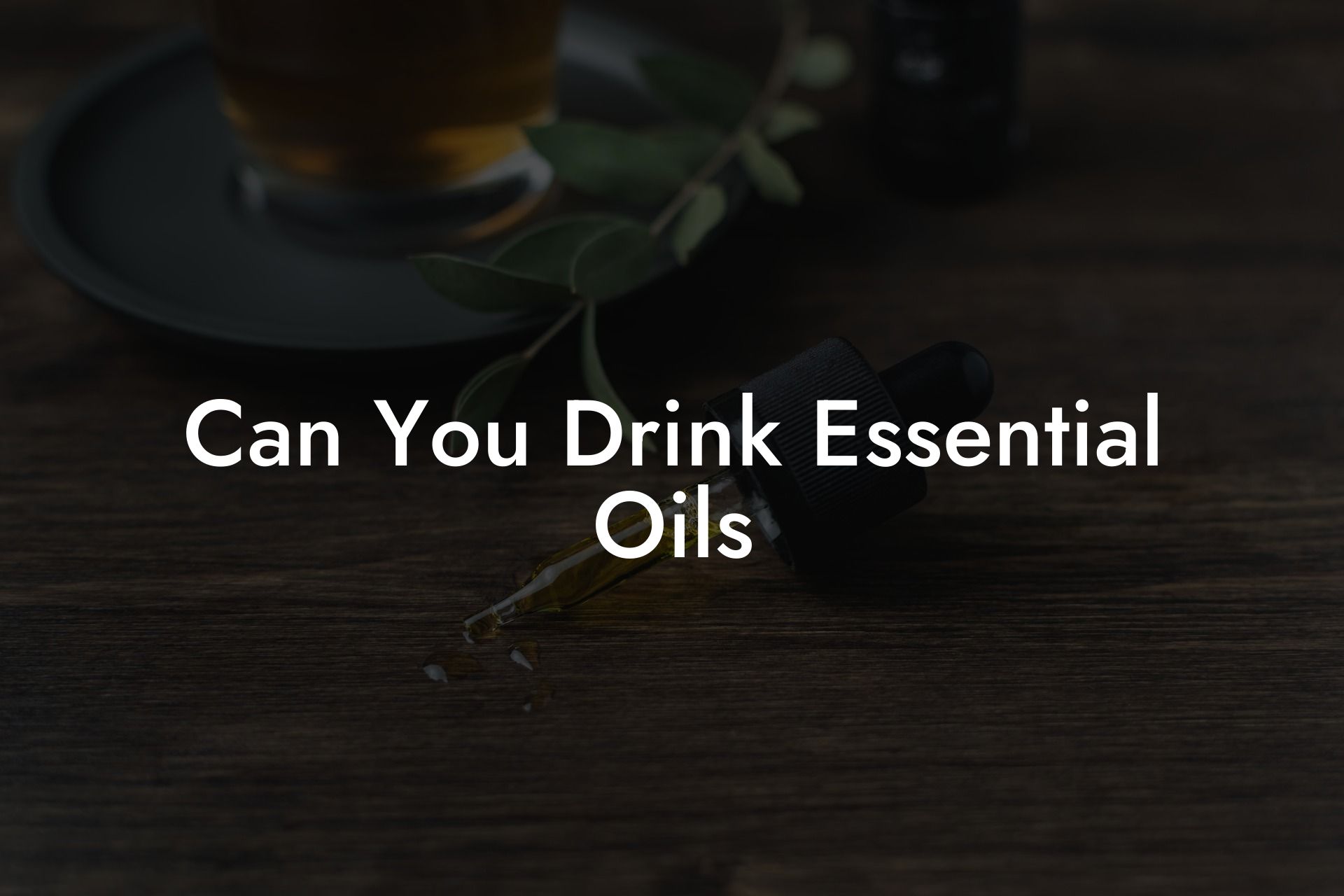Are you curious about the world of essential oils and wondering if you can drink them? With the growing popularity of aromatherapy and essential oils, you might be surprised to learn that these powerful elixirs really shouldn’t be taken internally. This comprehensive guide will help you understand why essential oils aren’t meant for consumption, and offer safe alternatives for their use.
Table of Contents
The Risks of Drinking Essential Oils
Essential oils are highly concentrated extracts that come from various plants. Their potency can make them incredibly beneficial when used properly, but they can also be harmful if misused.
- Concentrated Potency: Essential oils are highly concentrated, making them very potent. One drop of essential oil can be equivalent to multiple cups of the actual plant. Consuming such concentrated substances can cause irritation and damage to your mouth, throat, and digestive system.
- Lack of Regulation: There is little regulation in the essential oil industry, meaning that purity and quality can vary greatly between brands. Some oils may contain harmful additives or contaminants, which could have negative effects if ingested.
- Potential Drug Interactions: Many essential oils have the potential to interact with prescription medications, over-the-counter drugs, or other herbal remedies. This could lead to side effects or reduced efficacy of the medication.
- Allergic Reactions: Some people may experience allergic reactions when consuming essential oils, even if they don’t have any issues with topical use or inhalation. Ingesting the oils can potentially cause severe reactions.
Safe Ways to Use Essential Oils
While drinking essential oils is not recommended, there are many safe and effective ways to incorporate them into your daily life.
- Aromatherapy: By using a diffuser or simply inhaling the aroma from the bottle, essential oils can influence your mood and overall well-being. For example, lavender oil can help promote relaxation and sleep, while peppermint oil can boost energy levels and focus.
- Topical Application: Essential oils can be diluted with carrier oils (such as almond, jojoba, or coconut oil) and applied directly to the skin. This method allows the oils to be absorbed into the bloodstream and can help target specific areas, like sore muscles or inflamed joints.
- DIY Products: Create your own essential oil-infused products, such as bath salts, body lotions, or cleaning solutions. This way, you can enjoy their benefits without the risks associated with ingestion.
- Culinary Flavors: If you want to enjoy the flavors of essential oils, opt for food-grade, natural extracts instead. These are often diluted and specifically designed for ingestion, making them a safer alternative.
Can You Drink Essential Oils Example:
Consider this common scenario: You’re having trouble falling asleep at night and decide to try lavender essential oil for its calming properties. Rather than ingesting the essential oil, which could cause complications, follow these safe and effective steps:
1. Invest in a high-quality ultrasonic diffuser and place it on a tabletop near your bed.
2. Fill the diffuser with water and add a few drops of lavender essential oil.
3. Turn on the diffuser and allow the calming aroma to fill your room as you prepare for sleep.
4. If desired, you can also dilute the lavender essential oil with a carrier oil and apply it to your wrists, temples, and collarbone for additional relaxation benefits.
By understanding the risks associated with drinking essential oils and embracing safe alternatives, you can enjoy the many benefits these natural remedies have to offer without compromising your health. Share this informative article with friends and family who may be curious about essential oils so they too can benefit from this knowledge. Interested in learning more? Explore the complete guide to essential oils and aromacology on Oshu Oils’ blog, and check out their range of artisan essential earth oils to elevate your daily life.





















